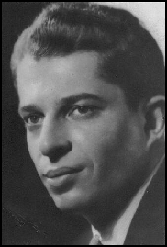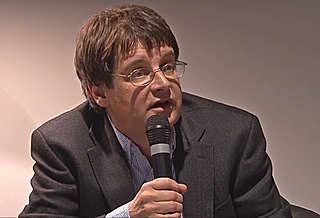A Quote by Albert Maltz
And Marx spoke of the fact that socialism will be the kingdom of freedom, where man realizes himself in a way that humankind has never seen before. This was an inspiring body of literature to read.
Related Quotes
To paraphrase Karl Marx, the great Karl Marx, a specter is haunting the streets of Copenhagen...Capitalism is the specter, almost nobody wants to mention it...Socialism, the other specter Karl Marx spoke about, which walks here too, rather it is like a counter-specter. Socialism, this is the direction, this is the path to save the planet, I don't have the least doubt. Capitalism is the road to hell, to the destruction of the world.
In the last few decades we have seen the extraordinary rise of ecosocialist movements around the world inspired in large part by Marx's ecological critique of political economy. Marx was indeed influenced by some of the earliest attempts to develop what we now call an ecological-systems view, rooted in the concept of metabolism. Building on this perspective, Marx defined socialism as the rational regulation by the associated producers of the metabolism between society and nature in such a way as to conserve energy and to promote the satisfaction of human needs.
On the one hand, man is a body, in the same way that this may be said of every other animal organism. On the other hand, man has a body. That is, man experiences himself as an entity that is not identical with his body, but that, on the contrary, has that body at its disposal. In other words, man's experience of himself always hovers in a balance between being and having a body, a balance that must be redressed again and again.
Christ and the life of Christ is at this moment inspiring the literature of the world as never before, and raising it up a witness against waste and want and war. It may confess Him, as in Tolstoi's work it does, or it may deny Him, but it cannot exclude Him; and in the degree that it ignores His spirit, modern literature is artistically inferior. In other words, all good literature is now Christmas literature.
I spoke to Geoff Johns a lot. We went back and forth, and found a way to bring up the best qualities in his personality and psychology and also fill a niche in Gotham that we've never seen. It became about is there a way to really plant this hero in Gotham and say this is someone you haven't seen before - both in terms of who they are as a person and who they are as a hero.
The individual man, in introspecting the fact of his own consciousness, also discovers the primordial natural fact of his freedom: his freedom to choose, his freedom to use or not use his reason about any given subject. In short, the natural fact of his "free will." He also discovers the natural fact of his mind's command over his body and its actions: that is, of his natural ownership over his self.
Marx's Kapital is not a treatise on socialism; it is a gerrymand against the bourgeoisie. It was supposed to be written for the working class, but the working man respects the bourgeoisie and wants to be a bourgeoisie. Marx never got a hold of him for a moment. It was the revolting sons of the bourgeoisie itself, like myself, that painted the flag red. The middle and upper classes are the revolutionary element in society. The proletariat is the conservative element.
We came to this earth that we might have a body and present it pure before God in the celestial kingdom. The great principle of happiness consists in having a body. The devil has no body, and herein is his punishment. He is pleased when he can obtain the tabernacle of man. . . . All beings who have bodies have power over those who have not.
Then I said to you, 'Do not be in dread or afraid of them. The LORD your God who goes before you will himself fight for you, just as he did for you in Egypt before your eyes, and in the wilderness, where you have seen how the LORD your God carried you, as a man carries his son, all the way that you went until you came to this place.
To those who think that all this sounds like science fiction, we point out that yesterday's science fiction is today's fact. The Industrial Revolution has radically altered man's environment and way of life, and it is only to be expected that as technology is increasingly applied to the human body and mind, man himself will be altered as radically as his environment and way of life have been.
The genius of the Word of God is that it has staying power; it can stand up to repeated exposure. In fact, that's why it is unlike any other book. You may be an expert in a given field. If you read a book in that field two or three times you've got it. But that's never true of the Bible. Read it over and over again, and you'll see things that you've never seen before.
No one spoke in terms of children's literature, as opposed to adult literature, until around the 1940s. It wasn't categorised much before then. Even Grimm's tales were written for adults. But it is true that ever since 'Harry Potter' there has been a renaissance in fantasy literature. J. K. Rowling opened the door again.


































